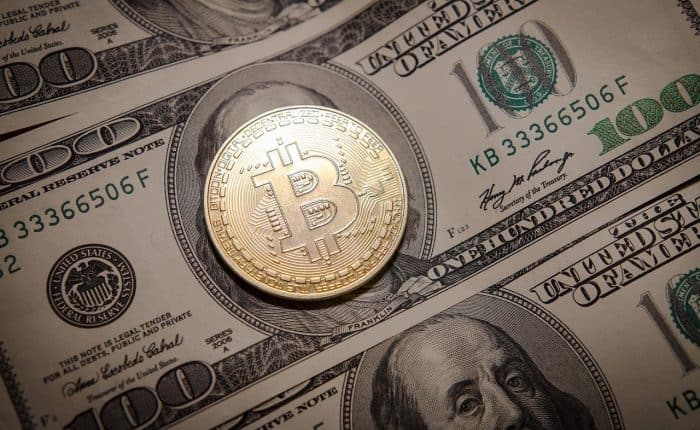Cryptocurrency is the new tax haven. Setting up an offshore structure, and holding your coins in an “offshore” wallet allows you to protect your assets with complete anonymity.
For this article, an “offshore” wallet is any exchange or platform that doesn’t have ties to the United States. The IRS and US agencies have issued search warrants to US exchanges. Likewise, the government can seize any assets held in a US platform.
For example, the US IRS served a John Doe summons on Coinbase in July of 2017, demanding records for all 17,000 customers. The plan is to compare that data with tax returns to ensure US customers are paying US taxes on their trades.
The US government can’t easily search, nor can they seize. assets held in foreign exchanges. So long as the exchange doesn’t have a US branch or license, and is not located in the UK, France, or Canada, you’re protected.
For this reason, offshore cryptocurrency platforms are the new best form of tax haven. So long as you don’t sell the coins, or exchange them for FIAT currency, you won’t pay US taxes. This is because the US taxes cryptocurrency as an asset and is only taxable when sold.
And these offshore exchanges are generally unregulated and untouchable by the US government. These platforms are in the cloud and operated from countries that haven’t issued regulations or licenses governing cryptocurrency. Only in the most extreme cases, think Silk Road, will a platform be taken down.
Foreign banks are regulated the FATCA and the US government now gets reports of all of your transactions. Banks agreed to this because they must have access to US dollars and the US banking system. Failure to comply would put them out of business, so they bent over and took it.
Crypto platforms don’t need access to US dollar accounts. They don’t need a correspondent bank and don’t need to participate in the US banking system. Thus, they’re immune from the pressures of the US government.
The most notable peculiarity of cryptocurrency is that it comports as traditional tax havens in itself. Virtual currencies are not subject to taxation until sold and can be held in complete anonymity. This new type of financial vehicle does not depend directly on existing financial institutions, they’re based on blockchain and held in cyberspace, creating the virtual jurisdiction.
And I expect this to continue. As countries like China force out cryptocurrencies, they will simply move to the cloud. Buy a license from a Caribbean island and launch your global business… easy enough.
Likewise, as the United States increases taxes and attacks cryptocurrency at every turn, Americans will move offshore and to the cloud. As the quality of international platforms improve, why would anyone hold their coins in the United States? To do so goes against the principles of privacy and security on which Bitcoin was founded.
The fact that cryptocurrency systems are being treated as tax havens has a few side effects.
Experience the Insider community that takes your international lifestyle to the next level. Download your FREE guide
"18 Steps to Implementing Your Plan B" instantly!
First, banks hate cryptocurrency. The methodology of cryptocurrency is incompatible with US banks. Because all offshore banks are beholding to US banks, crypto is also incompatible with offshore banks.
Second, a lack of banking means it’s become very difficult to exchange cryptocurrency for FIAT currency. You can buy tokens, or change from one crypto to another. But, moving large amounts of crypto into FIAT is fraught with all kinds of problems.
The only country in the world where I’ve found it easy to exchange crypto for FIAT is Mexico. Here, you can move out of Bitcoin or Ethereum and on to a loaded debit card or bank account in about 15 minutes.
You can also deposit physical cash and receive Bitcoin at about 135,000 locations throughout Mexico (Oxxo, 7-11, and various banks). This is a truly amazing component of cryptocurrency in Mexico. It will be a cold day in hell before the US allows such efficiency to exist.
Third, a lack of FIAT exchanges means that there are many crypto millionaires looking for something to do with their coins. They want to diversify out of crypto and into stocks, but can’t convert and don’t want to pay the tax.
These issues are driving the ICO wave in part. According to Business Insider, over $2 billion of “crazy money” has been thrown at ICOs because the holders have nothing better to do with their coins.
The bottom line is that many ICOs are funded by people who got rich using automatic trading Bitcoin Profit software. These early adopters have more coins than sense and no better options because they can’t exchange out and don’t want to pay the IRS.
Bitcoin miners and early buyers need to diversify their exposure to the volatile cryptocurrency. Through these crypto colored glasses, ICOs look like a good deal.
I hope you’ve found this article on why cryptocurrency is the new tax haven to be helpful. For more information, and to set up an offshore structure, please contact us HERE.
Here is the most comprehensive article on going offshore. Make sure to read it: The Ultimate Guide To Going Offshore
Like Our Articles?
Then make sure to check out our Bookstore... we have titles packed full of premium offshore intel. Instant Download - Print off for your private library before the government demands we take these down!







